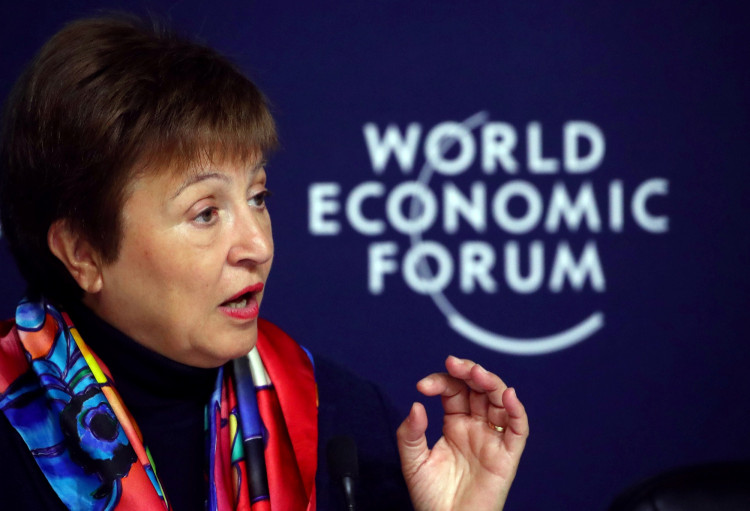The International Monetary Fund has issued a bleak forecast for 2020, effectively downgrading its economic growth expectations from its more optimistic outlook just a few months ago.
The international organization based in Washington announced on Monday that it has downgraded its 2020 economic growth forecast to 3.3 percent, down a point from the 3.4 percent growth projection in October. The group stated that weaknesses in emerging markets and growing social unrest were some of the main reasons for its decision.
Despite downgrading its forecast, the figure presented by the IMF is still much higher than the actual economic growth recorded last year. According to the IMF, economic growth for 2019 likely came in at around 2.9 percent. It predicts that growth this year will drastically improve, as some economic risks have been resolved.
The IMF outlined in its report that there are some "tentative signs" of improvement in global manufacturing and trade. These signed include "intermittent favorable news" surrounding the possible resolution of the long-running trade dispute between China and the United States. News also remains to be mostly positive regarding the Brexit issue and anxieties surrounding both issues have been greatly reduced over the past couple of weeks.
While the signs may become turning points that can result in a global economic rebound, the IMF still pointed out some concerns. The group particularly mentioned its immediate concerns involving the resilience of developing economies.
The IMF slightly downgraded its economic growth forecast for India to just 5.8 percent for 2020. While the figure is higher from the 4.8 percent economic growth in the country last year, it is a full 1.2 percent lower than the group's initial forecast in October.
The downgrade was mainly due to a sharp dip in domestic demand in India, a decline that was apparently unexpected. The IMF also reported much of the same for other developing economies, including Mexico, South Africa, and Chile. The slowed domestic demand in these economies could apparently stress their respective financial sectors, resulting in lower credit growth overall.
Meanwhile, the IMF did at least upgrade China's 2020 economic growth projection by 0.2 percent to 6 percent. The group attributed the positive outlook to the recently signed phase one trade deal, which partially reduced and canceled some tariffs on Chinese exports.
For the United States, the outlook for the entire year still remained stable, which for some is not particularly encouraging. The IMF dropped its economic growth outlook for the US by 0.1 percentage points from its projection in October to 2 percent. The forecasts for 2020 are however based on the assumption that no further hiccups occur in the ongoing trade negotiations between China and the United States.






